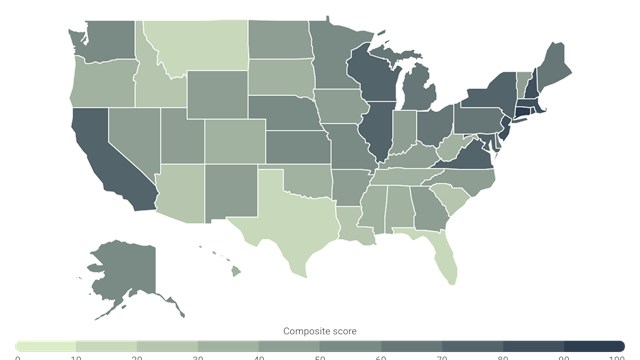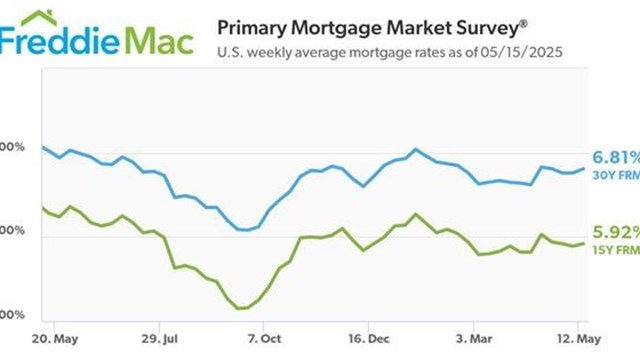A recent headline-making settlement by the National Association of Realtors (NAR) is poised to substantially change the way residential realtors’ commissions are paid on real estate sales in the United States for the first time in a century. No longer will compensation for the buyer’s agent be negotiated and paid through and by the seller and seller’s agent. It’s a big deal - but what does it mean for us here in New York City?
The REBNY Factor
As it happens, real estate agents in New York are not governed by NAR rules. The many brokerage firms that operate in New York are governed by the Real Estate Board of New York (REBNY). The recent NAR settlement was reached in response to a lawsuit alleging restraint of competition in brokerage commissions. In response to a lawsuit similar to the one brought against NAR, REBNY issued new rules for buyer agent commissions that went into effect this past January. REBNY’s co-brokerage agreement requires that all offers of compensation to a buyer’s agent must come directly from the seller. The buyer’s agent may then accept, reject, or negotiate that offer.
New York was, once again, ahead of the curve. Christopher Santarelli, Director of Media Relations for REBNY, notes that the organization recognized the importance of the NAR decision and issued a statement to its membership immediately thereafter, despite the fact that its own rules were already in line with the NAR decision.
“As the leading advocate for New York City agents and brokers, we are proud that thousands of industry professionals utilize REBNY's Residential Listing Service (RLS) to do business,” the message sent by REBNY to its members said. “The RLS is governed by the Universal Co-Brokerage Agreement (UCBA), which is the set of rules that the industry has created that reflects its commitment to ethics, transparency, and consumer confidence. Last Friday, the National Association of Realtors (NAR) reached a settlement involving changes to the process by which real estate is bought and sold over listing services. While REBNY and the RLS are not affiliated with NAR, this settlement may impact the New York City market. Here is what you need to know: We are reviewing the settlement and will provide an analysis to REBNY members shortly. REBNY's RLS will continue to power your listing service and uphold the principles of the UCBA. You can keep using the RLS, engage clients, and transact business as you normally would. As the nationwide landscape involving residential real estate transactions continues to change, REBNY is committed to supporting your work.”
Impact on Co-op & Condo Owners?
Expert conjecture suggests that over ,the changes to buyer’s agent commissions and how they are negotiated and paid should result in lower commissions. But that’s been predicted before - unsuccessfully. Unlike travel agents or stock brokerages, the advent of internet-based transactions has not pushed down real estate commissions. Efforts to date, such as YourHomeDirect have failed miserably. The difference here is that sellers will now have direct input in determining how much the buying or listing agent receives.
Alternatively, if sellers push too hard on buyer agents, those same agents may not push those units which pay a lower commission. Buyer agents still have a good deal of control over what units their clients see.
Nigel Pearce, a licensed salesperson with Compass in Manhattan believes that “There’s a strong possibility that the change in commission structure will lower prices.” He used to jokingly say to buyers that his services as a buyer’s agent was free to them. - because the seller was paying him. Now, he has to negotiate his fee directly with the seller, or he will have to negotiate an agreement with the buyer to pay him.
“Once the buyer signs an agreement to pay him and he has established a fee,” Pearce says, “he can show them anything and everything. If a buyer is unwilling to sign such an agreement, brokers will probably choose not to work with that buyer.” He points out that buyers need a broker for many reasons beyond just locating prospective apartments, including navigating co-op boards, application processes, and the closing process. First-time buyers in particular need the kind of guidance provided by an experienced broker.
Joanna Mayfield Marks, a broker with Brown Harris Stevens in Brooklyn observes that the change in rules will improve transactional experiences. “Overall, I think consumer transparency is important. I am hopeful that we can continue to work similarly to the past, but with more transparency. I truly believe consumers deserve representation, and as buyers are often strapped for cash from making lofty down payments and immediate repairs and renovations, it has been in the seller's interest to offer concessions or compensation to the buyer's agents. It is proven that real estate agents deliver a higher net to a seller by approximately eleven percent. I believe that seller compensation and participation toward buyer's agents is savvy, and will likely persist in some fashion.”










2 Comments
Leave a Comment